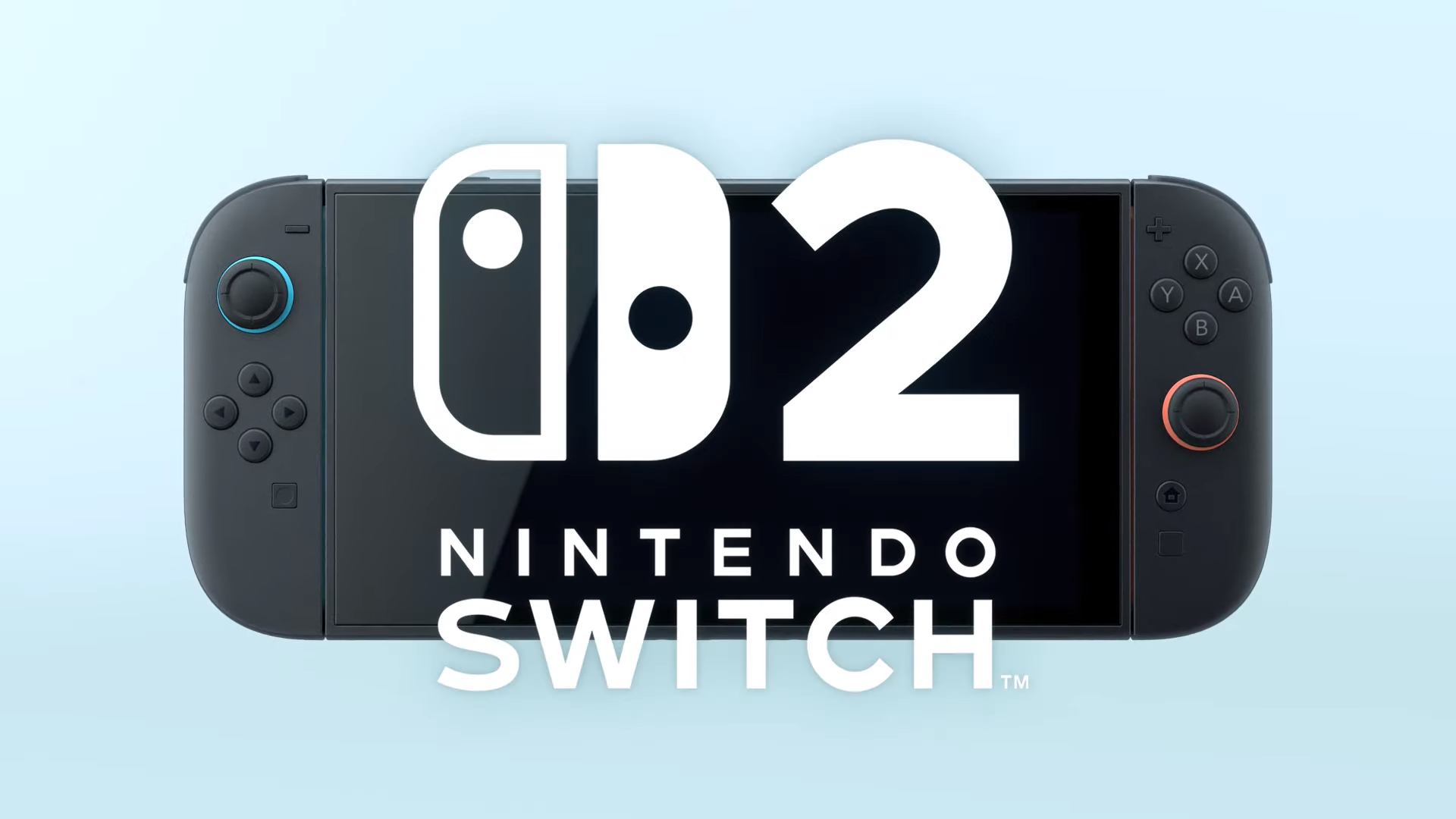Top FreeSync Gaming Monitors for 2025
- By George
- May 13,2025
The best FreeSync gaming monitors ensure that your monitor's refresh rate syncs seamlessly with compatible graphics cards, resulting in reduced input latency, screen tearing, and stuttering. AMD offers some of the top-tier graphics cards, such as the Radeon RX 7800 XT, which delivers high frame rates even at 1440p. Keep an eye out for the next generation of AMD GPUs announced at CES this year, the RX 5070 and RX 5070 XT, set to release in March, though exact dates and prices are still TBA.
To match the demands of a high-performance graphics card, you need a monitor equipped with the right technology. Our top recommendation is the Gigabyte Aorus FO32U, a powerhouse of a gaming monitor that strikes a balance between performance and affordability. For those seeking alternatives, we've curated a list of exceptional FreeSync gaming monitors to suit various needs and budgets.
TL;DR – These Are the Best FreeSync Gaming Monitors:
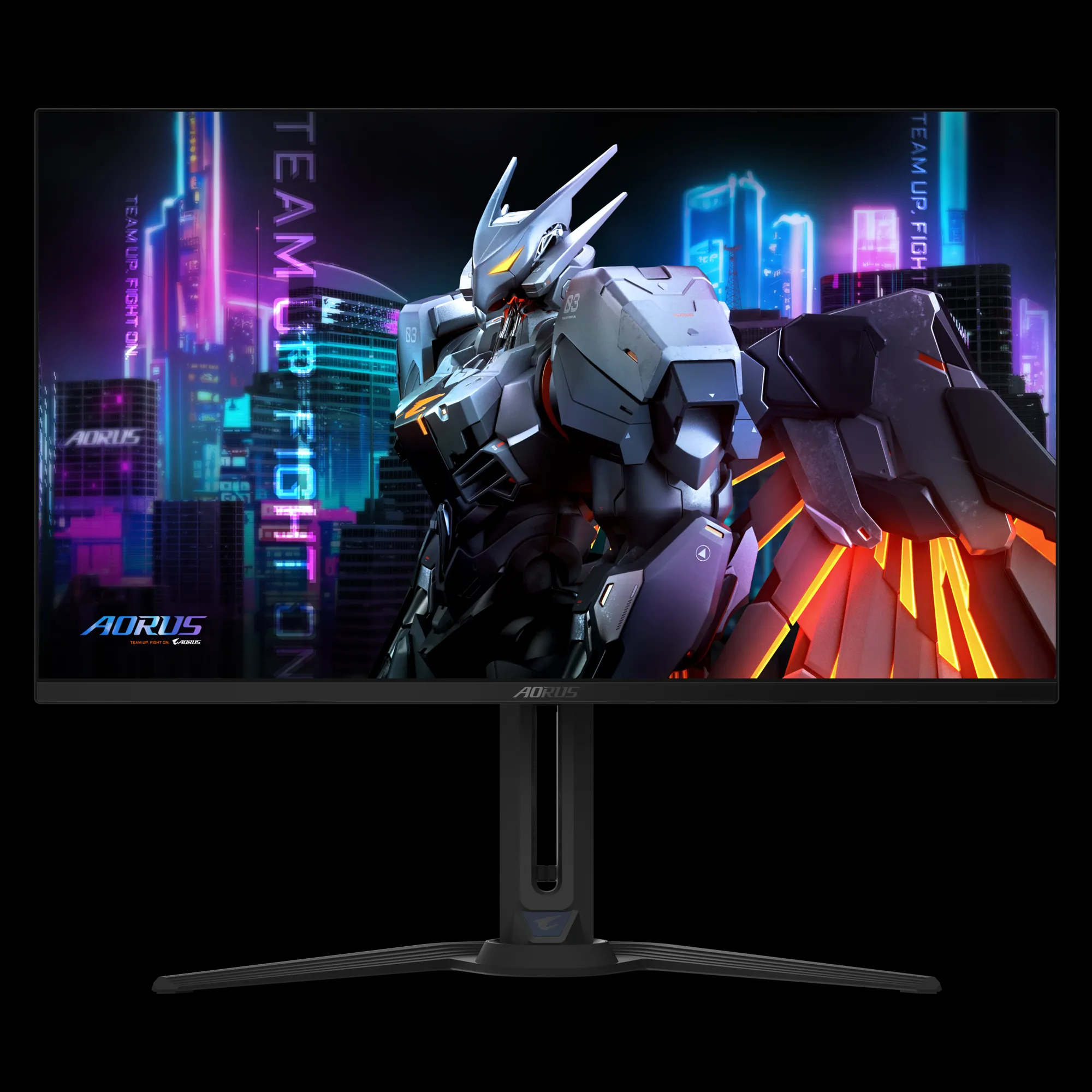 Our Top Pick### Gigabyte Aorus FO32U2
Our Top Pick### Gigabyte Aorus FO32U2
0See it at Amazon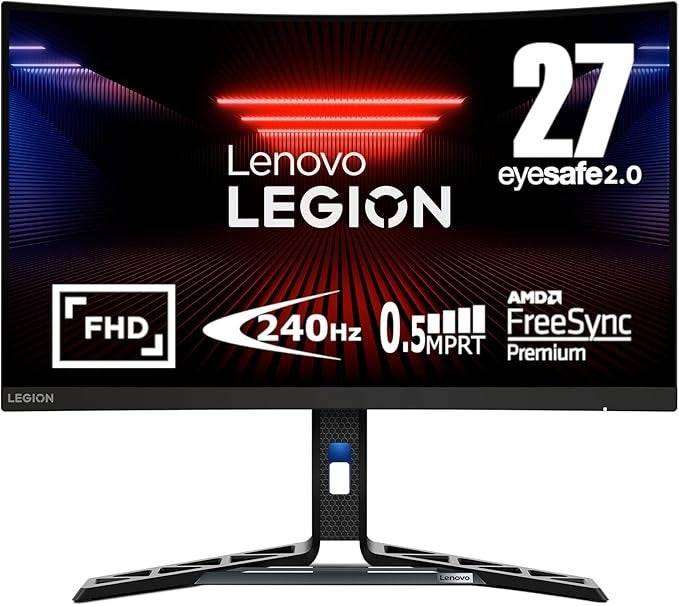 ### Lenovo Legion R27fc-30
### Lenovo Legion R27fc-30
0See it at AmazonSee it at Lenovo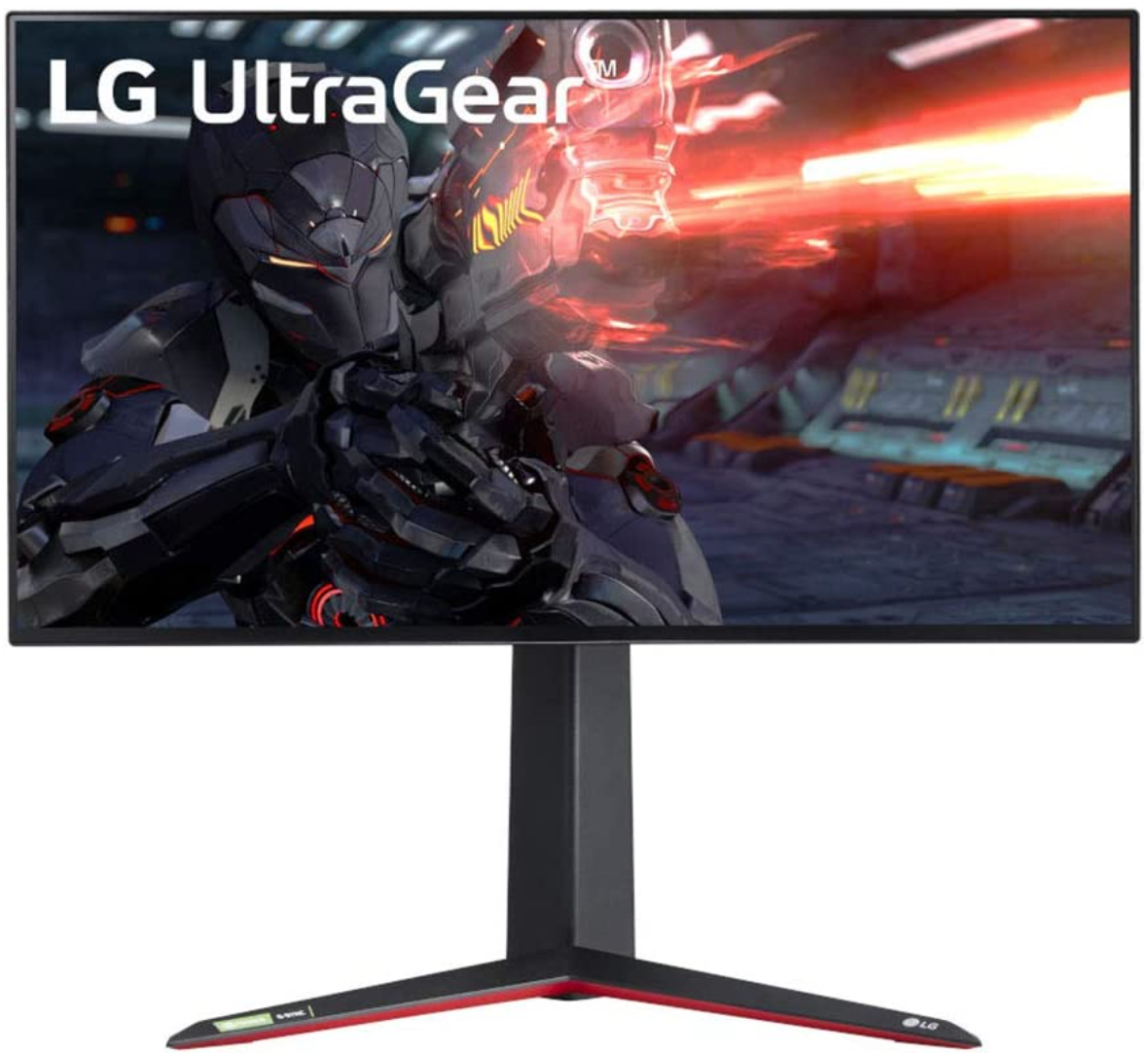 ### LG UltraGear 27GN950-B
### LG UltraGear 27GN950-B
0See it at Amazon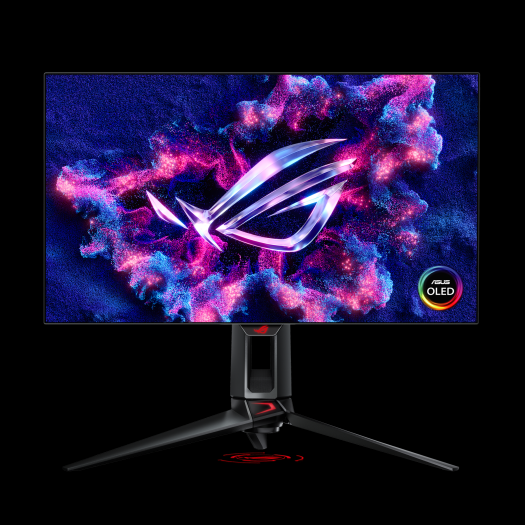 ### Asus ROG Swift PG27AQDP
### Asus ROG Swift PG27AQDP
0See it at AmazonSee it at Newegg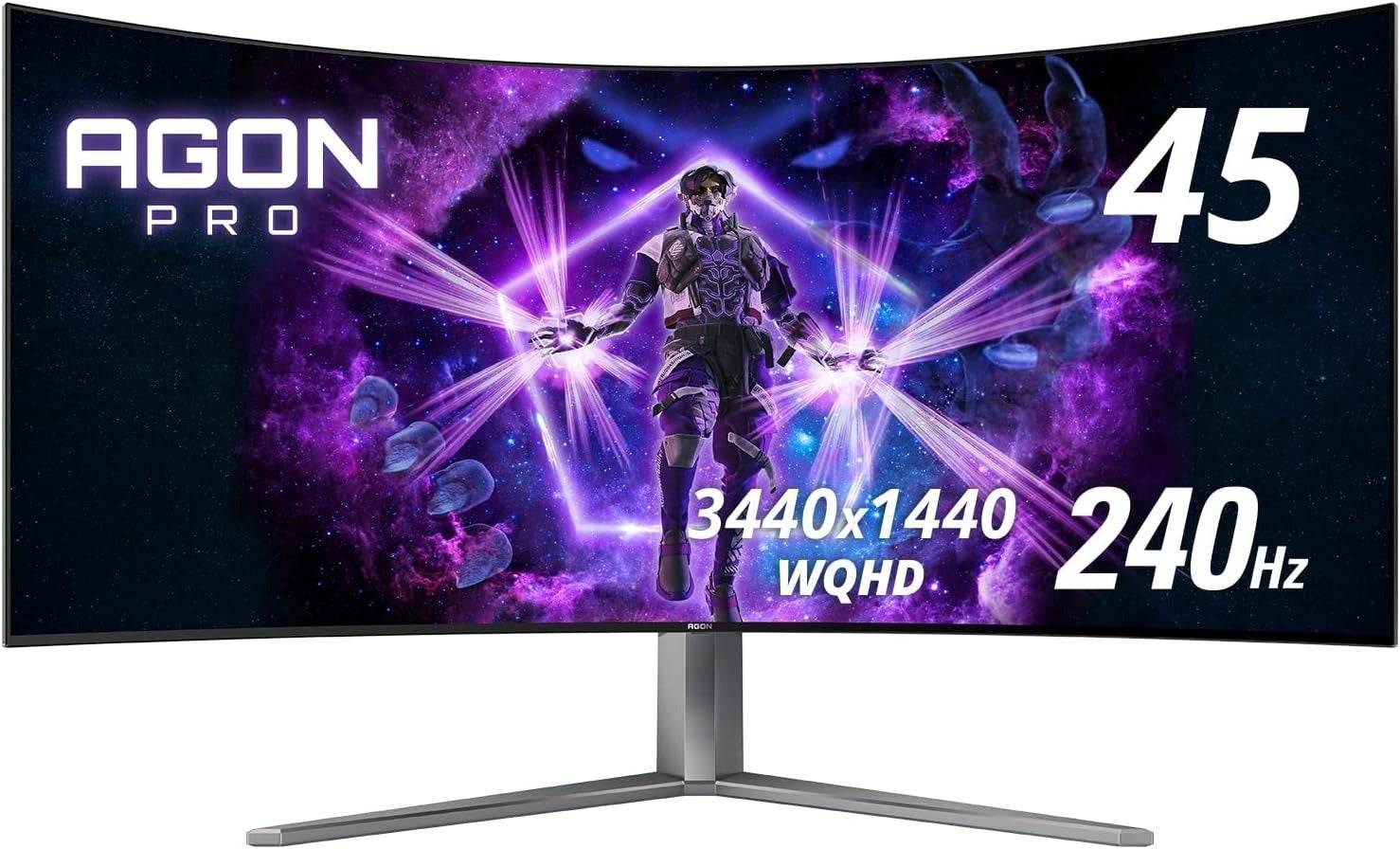 ### AOC Agon Pro AG456UCZD
### AOC Agon Pro AG456UCZD
0See it at AmazonAll the best gaming monitors should support FreeSync, and our curated list ensures you'll find the perfect fit. When building your gaming PC, choosing the right monitor is crucial to maximize your hardware and peripherals.
If you own an Xbox Series X or PlayStation 5, some of these monitors can also serve as excellent screens for your consoles.
Additional contributions by Kevin Lee, Georgie Peru, and Danielle Abraham.
Gigabyte Aorus FO32U2 Pro – Photos
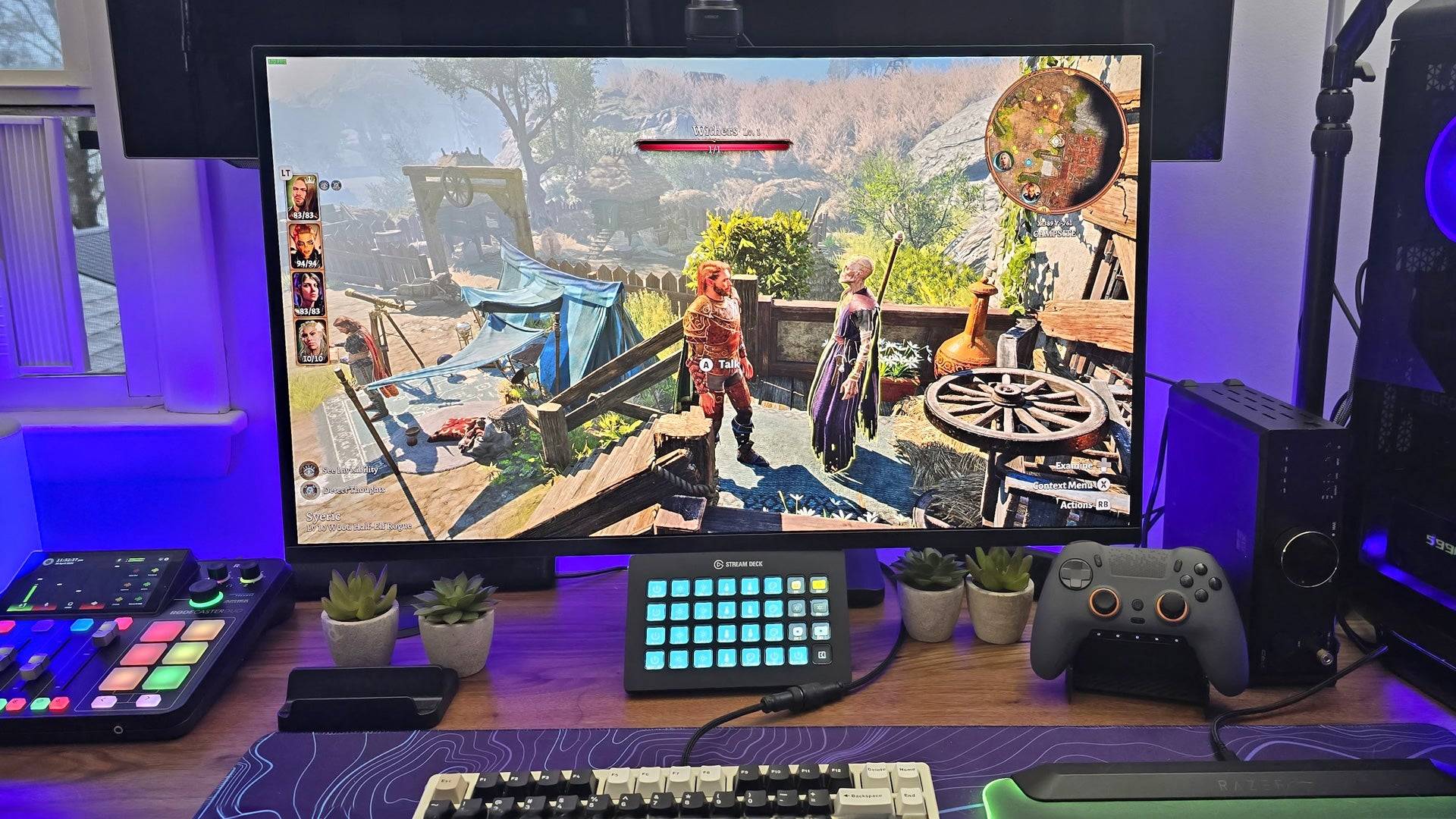
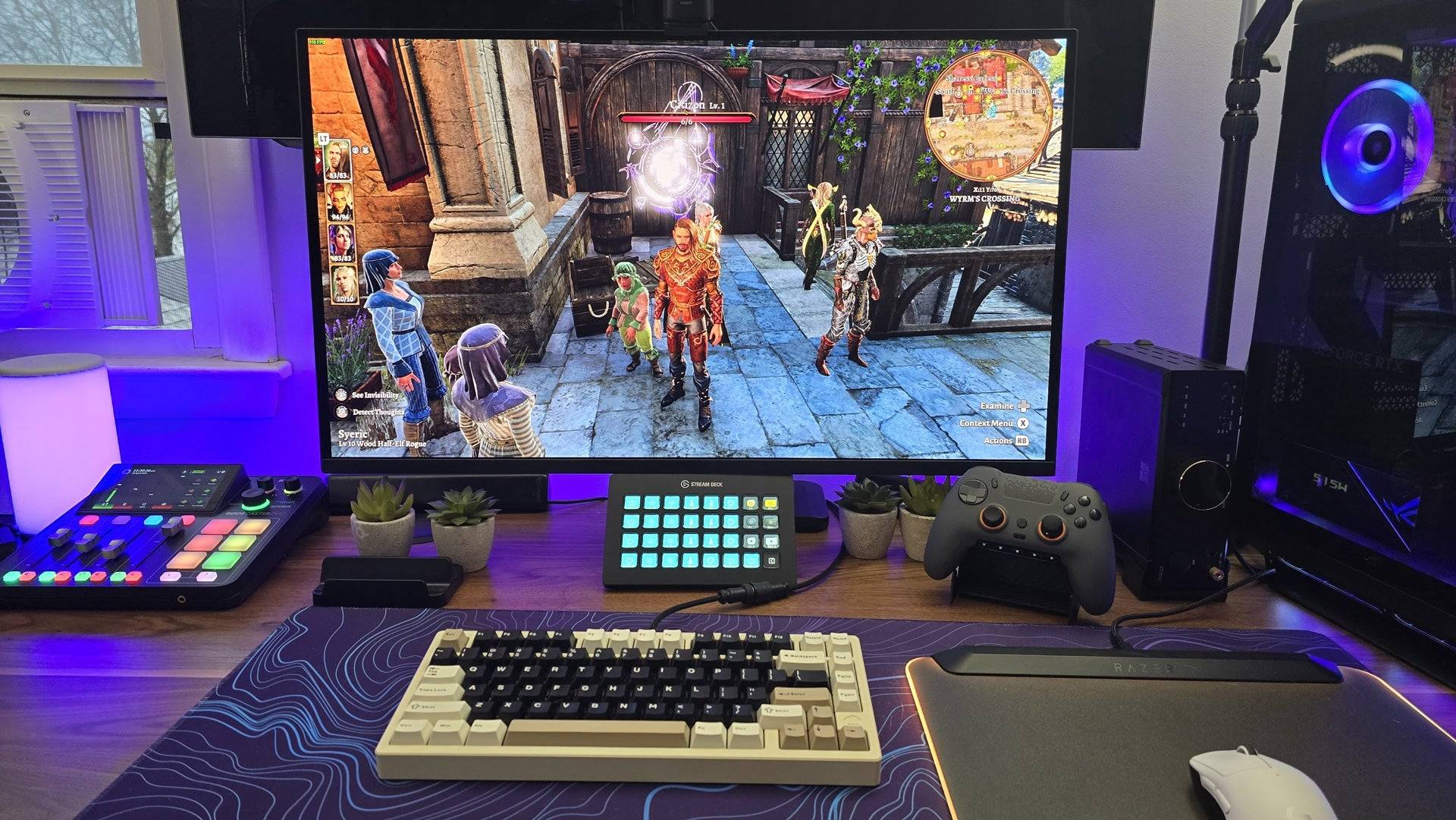 13 Images
13 Images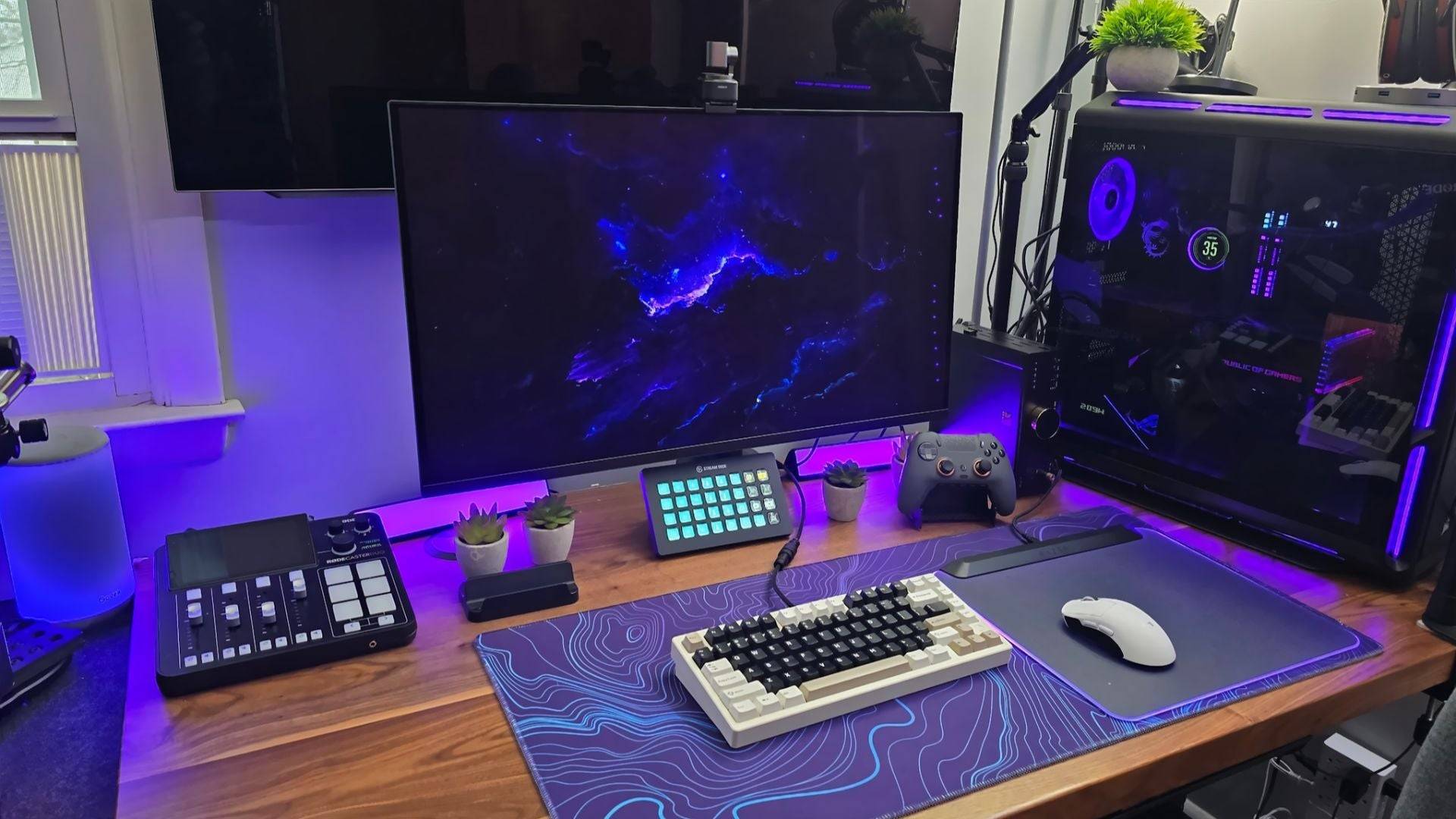
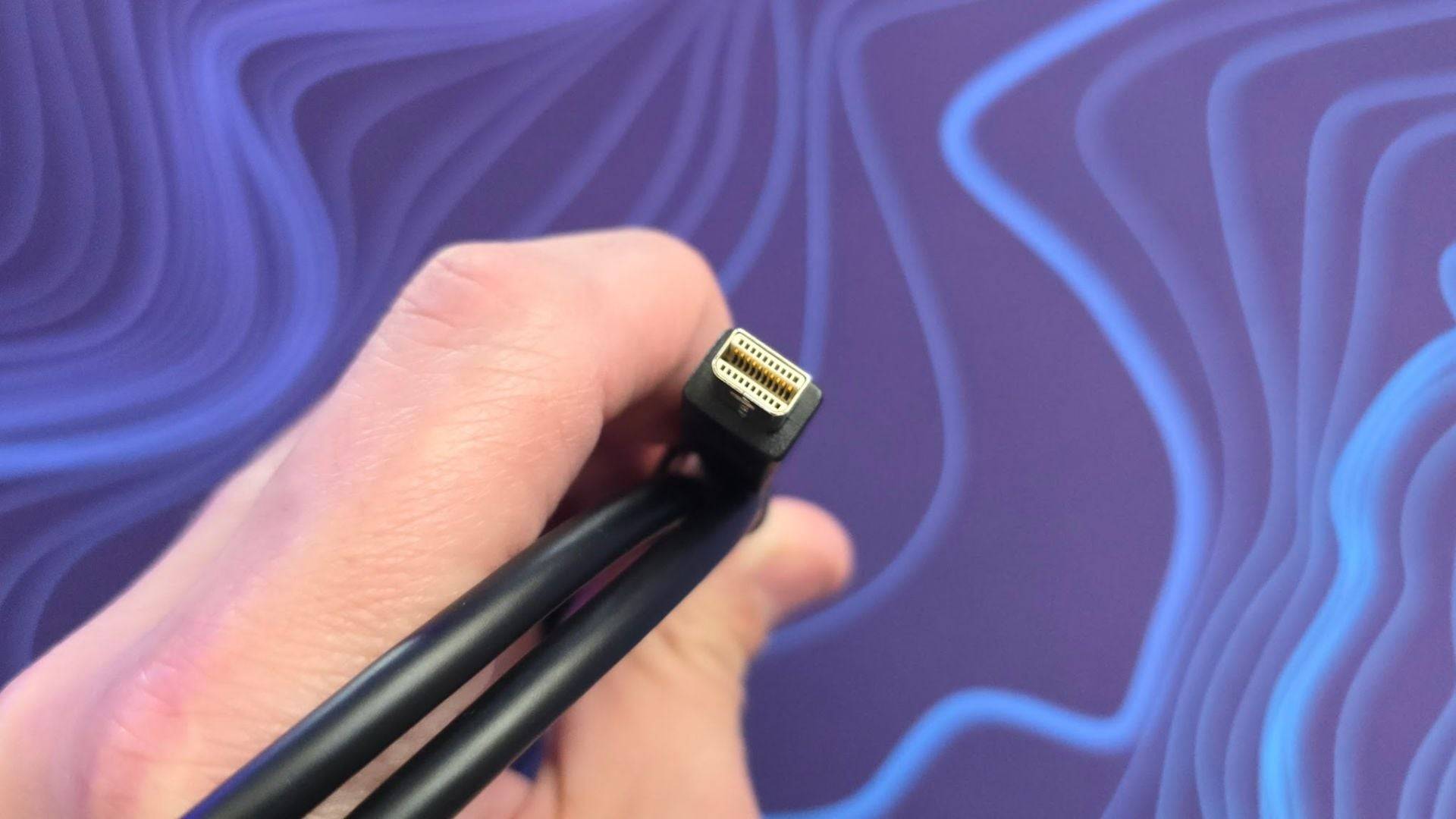
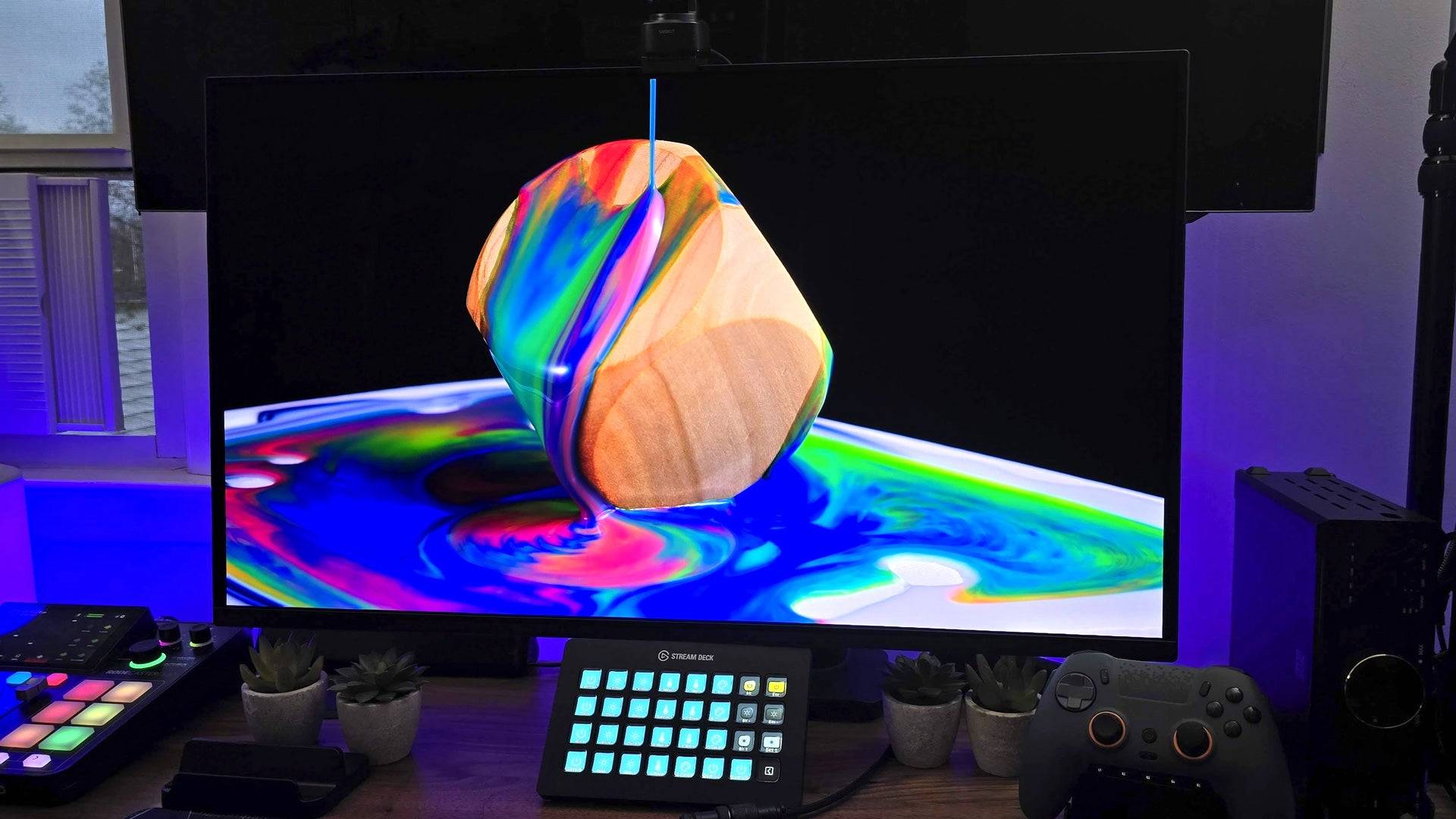
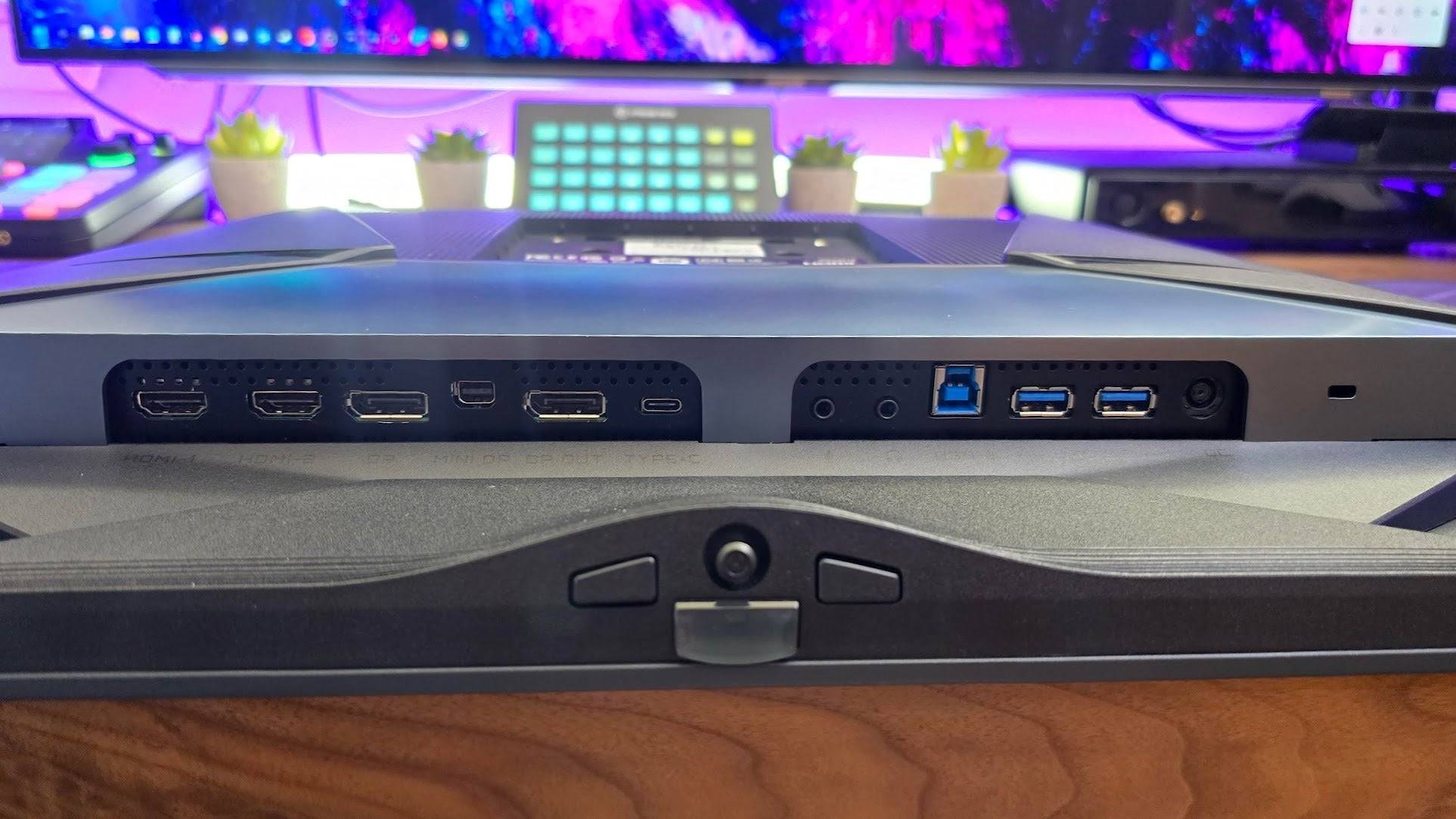
1. Gigabyte FO32U2
Best FreeSync Gaming Monitor
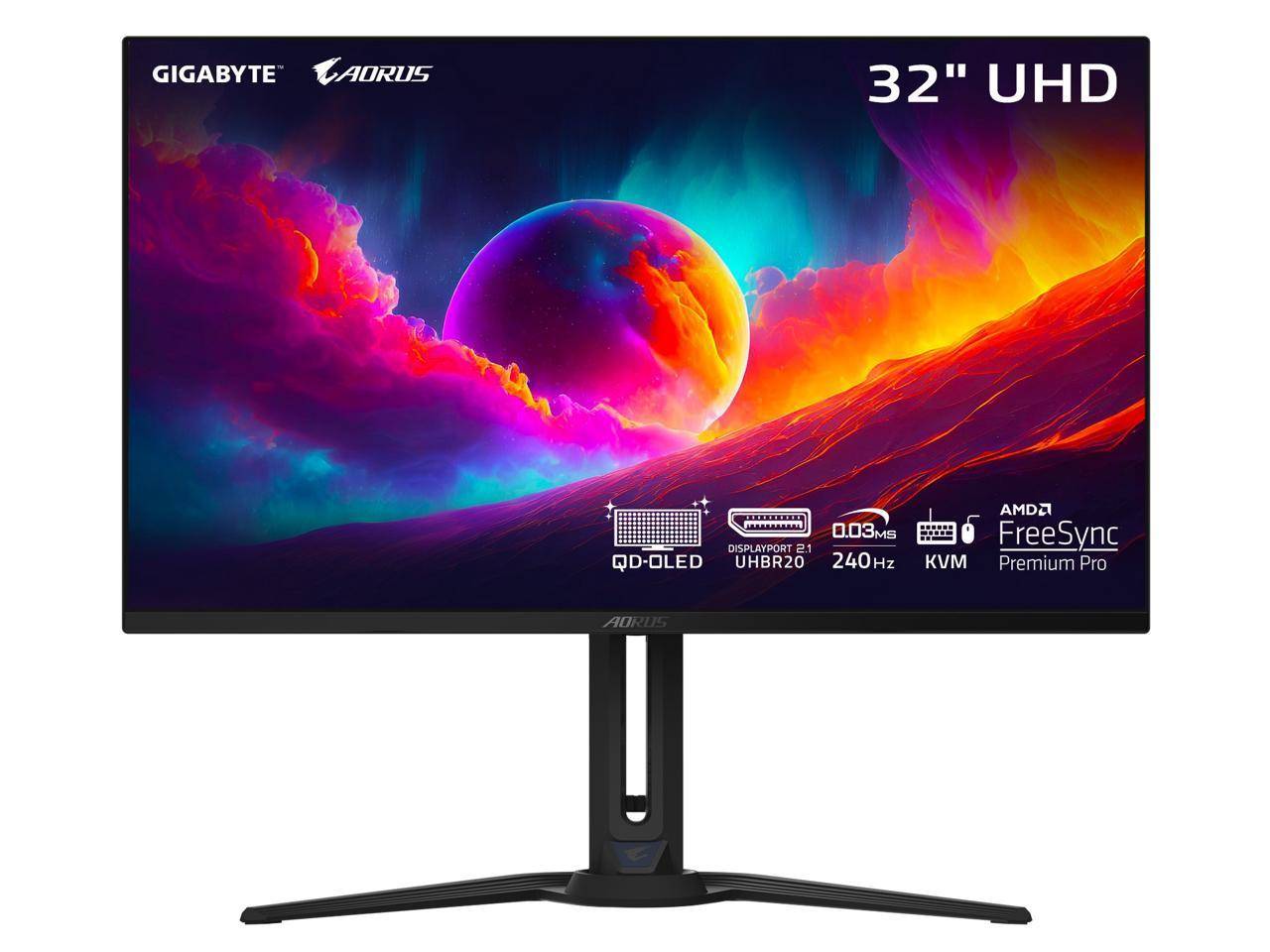 ### Gigabyte FO32U2 Pro
### Gigabyte FO32U2 Pro
15This stunning monitor delivers on all fronts, thanks to its array of features and OLED panel. See it at Amazon
Product Specifications
Aspect Ratio: 16:9Screen Size: 31.5”
Resolution: 3,840 x 2,160
Panel Type: QD-OLED
Brightness: 1,000cd/m²
Max Refresh Rate: 240Hz
Response Time: 0.03ms
Inputs: 2 x HDMI 2.1, 1 x DisplayPort 1.4, 1 x USB Type-C, 2 x USB 3.2 Type-A
PROS
- Outstanding 4K resolution with vivid colors
- Excellent performance
- High peak brightness
CONS
- Calibration needs tweaking initially
The best AMD FreeSync monitor of 2025 so far is the Gigabyte FO32U2, which I reviewed upon its release last year. This monitor comes in two versions: the standard one, recommended here, and the Pro, which features DisplayPort 2.1 support for future-proofing with upcoming graphics cards. It offers an incredible gaming experience with its beautiful QD-OLED display. Recent price cuts have made it one of the best value OLED gaming monitors available. Don't miss out on this gem.
Despite reviewing numerous cutting-edge gaming monitors, I chose this one for my personal setup. Its brightness and vividness, particularly in SDR, set it apart from the competition. I must admit, a year ago, this monitor faced stiffer competition. The non-Pro version, now well under $1,000, makes it an even better choice that I'm happy to recommend to my closest friends.
Although it's not the brightest QD-OLED gaming monitor on the market, reaching 1,000 nits in highlights, the difference between 1,000 and 1,300 nits is negligible in real-world gaming scenarios. Its motion clarity is fantastic, thanks to the rapid OLED panel and 240Hz refresh rate, making it ideal for competitive gaming.
The Gigabyte FO32U2 strikes a perfect balance between price and performance, making it an unbeatable choice for your gaming setup.
2. Lenovo Legion R27fc-30
Best Budget FreeSync Gaming Monitor
 ### Lenovo Legion R27fc-30
### Lenovo Legion R27fc-30
0This large-and-in-charge monitor offers a rapid refresh rate and FreeSync Premium at a budget-friendly price. See it at LenovoSee it at Amazon
Product Specifications
Screen size: 27"Aspect ratio: 16:9
Resolution: 1,920 x 1,080
Panel type: VA
FreeSync Premium
Brightness: 350 cd/m²
Refresh rate: 280Hz
Response time: 0.5ms
Inputs: 2 x HDMI 2.1, 1 x DisplayPort 1.4
PROS
- FreeSync Premium support
- Ridiculously high refresh rate for the price
- HDMI 2.1 support for consoles
CONS
- Limited peak brightness
Priced just under $200, the Lenovo Legion R27fc-30 is an excellent choice for both AMD and Intel users. Featuring a 1080p resolution on its 27-inch panel, it offers crisp visuals and an impressively fast 280Hz maximum refresh rate, perfect for competitive gaming without breaking the bank.
This monitor also supports HDMI 2.1 for easy console connectivity and has a curved 1500R panel for an immersive gameplay experience without text distortion. Its VA panel enhances image quality, providing better contrast and deeper blacks than IPS displays, though it may not be as color-rich. Overall, it's a great value that impressed me during testing.
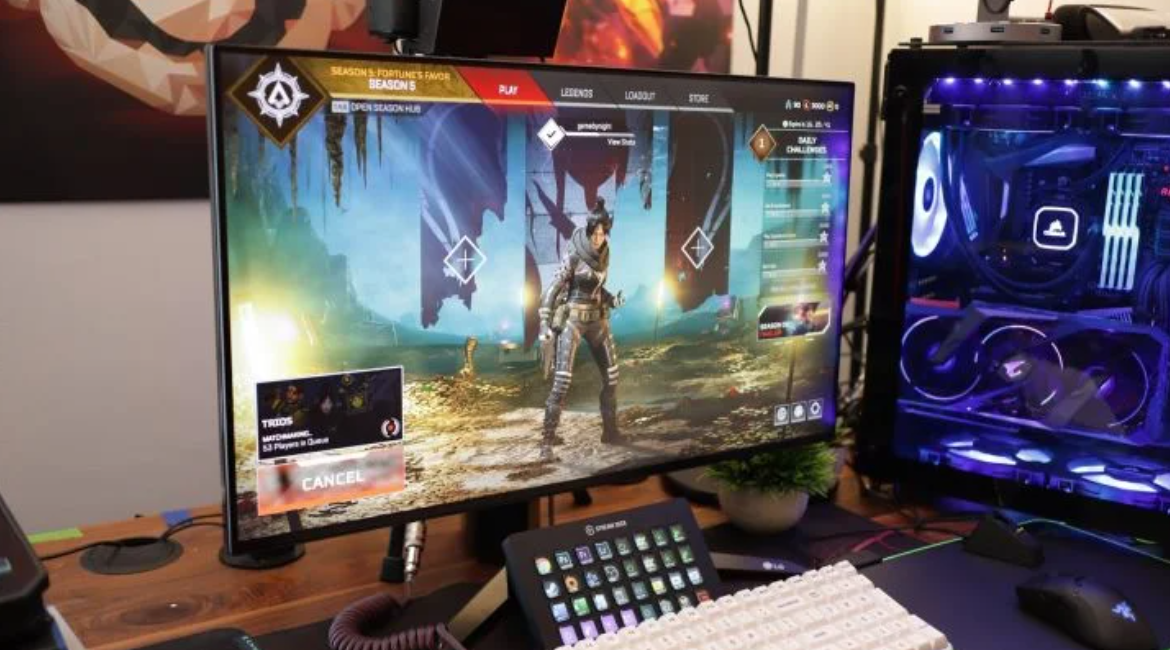 Brilliant IPS display of the LG UltraGear 27GN950-B
Brilliant IPS display of the LG UltraGear 27GN950-B
3. LG UltraGear 27GN950-B
Best 4K FreeSync Gaming Monitor
 ### LG UltraGear 27GN950-B
### LG UltraGear 27GN950-B
04K, FreeSync Premium Pro monitor offering a 144Hz refresh rate and HDR support for smooth action and vibrant visuals. See it at Amazon
Product Specifications
Screen size: 27"Aspect ratio: 16:9
Resolution: 3,840 x 2,160
Panel type: IPS
FreeSync Premium Pro, G-Sync Compatible
Brightness: 600cd/m²
Refresh rate: 144Hz
Response time: 1ms
Inputs: 2 x HDMI 2.0, 1 x DisplayPort 1.4
PROS
- FreeSync Premium Pro support for HDR gaming
- Wide color gamut support
CONS
- Poor contrast ratio
For 4K gaming monitors, the LG UltraGear 27GN950-B stands out, and it's my favorite, especially since it comes with FreeSync support. With FreeSync Premium Pro, it ensures smooth HDR gaming without tearing, stuttering, or latency issues. The IPS panel covers 98% of the DCI-P3 color space and achieves high brightness levels, making the most of HDR10 content or games.
The 4K resolution on the 27-inch panel offers incredible sharpness, and the 144Hz refresh rate ensures you don't have to trade speed for resolution. FreeSync steps in to support you when you can't maintain the full speed at 4K.
Asus ROG Swift OLED PG27AQDP – Photos
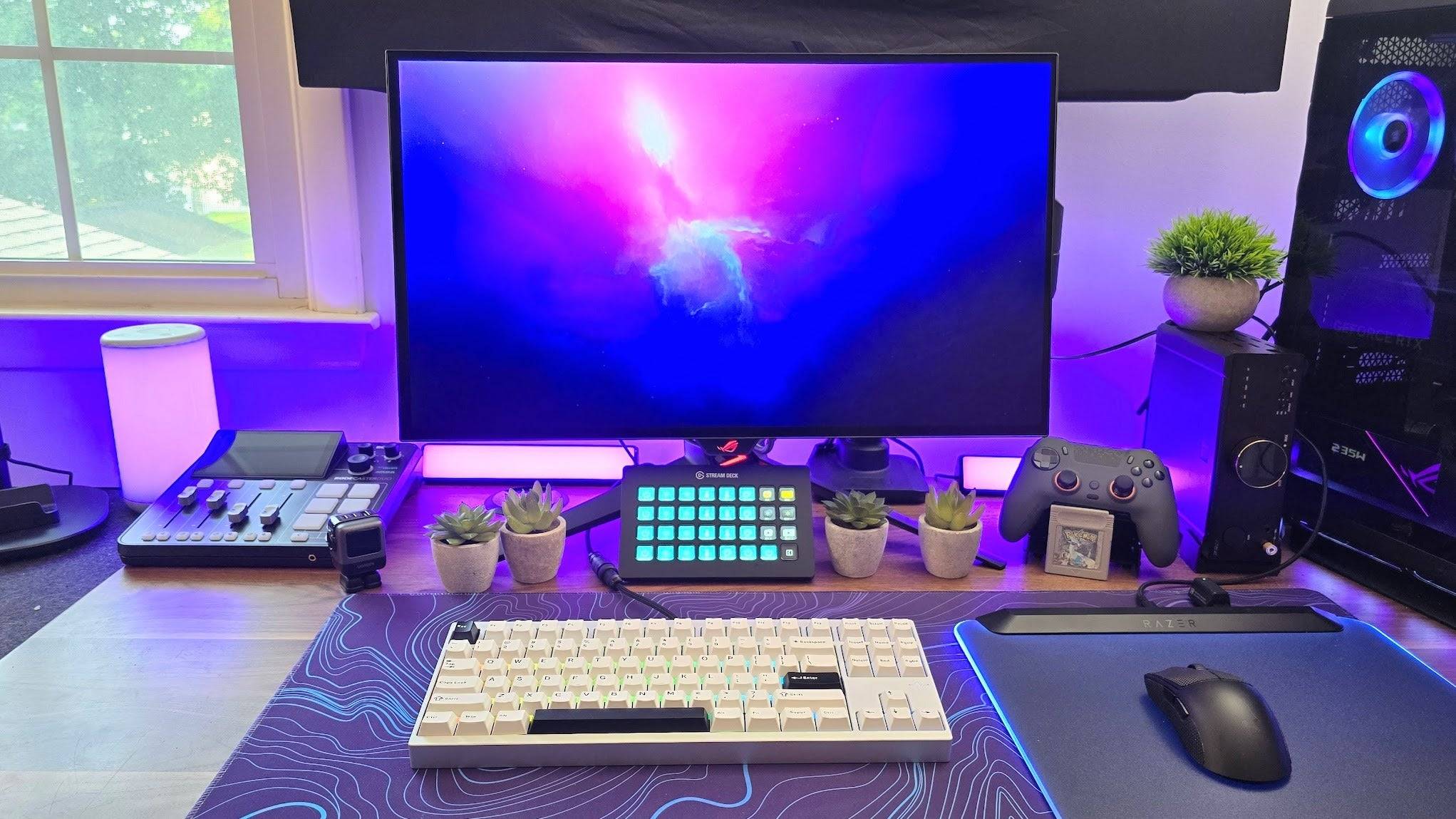
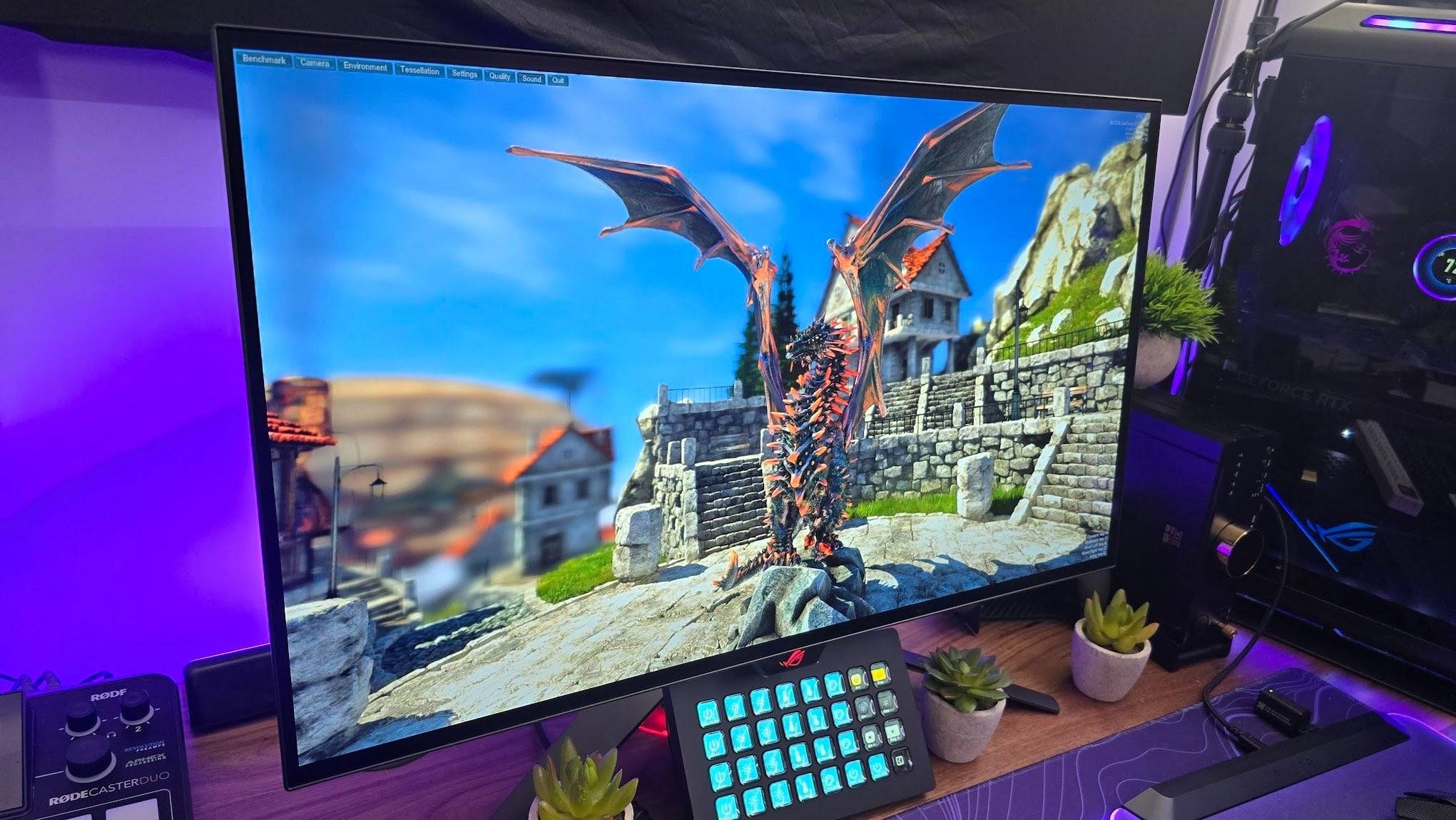 19 Images
19 Images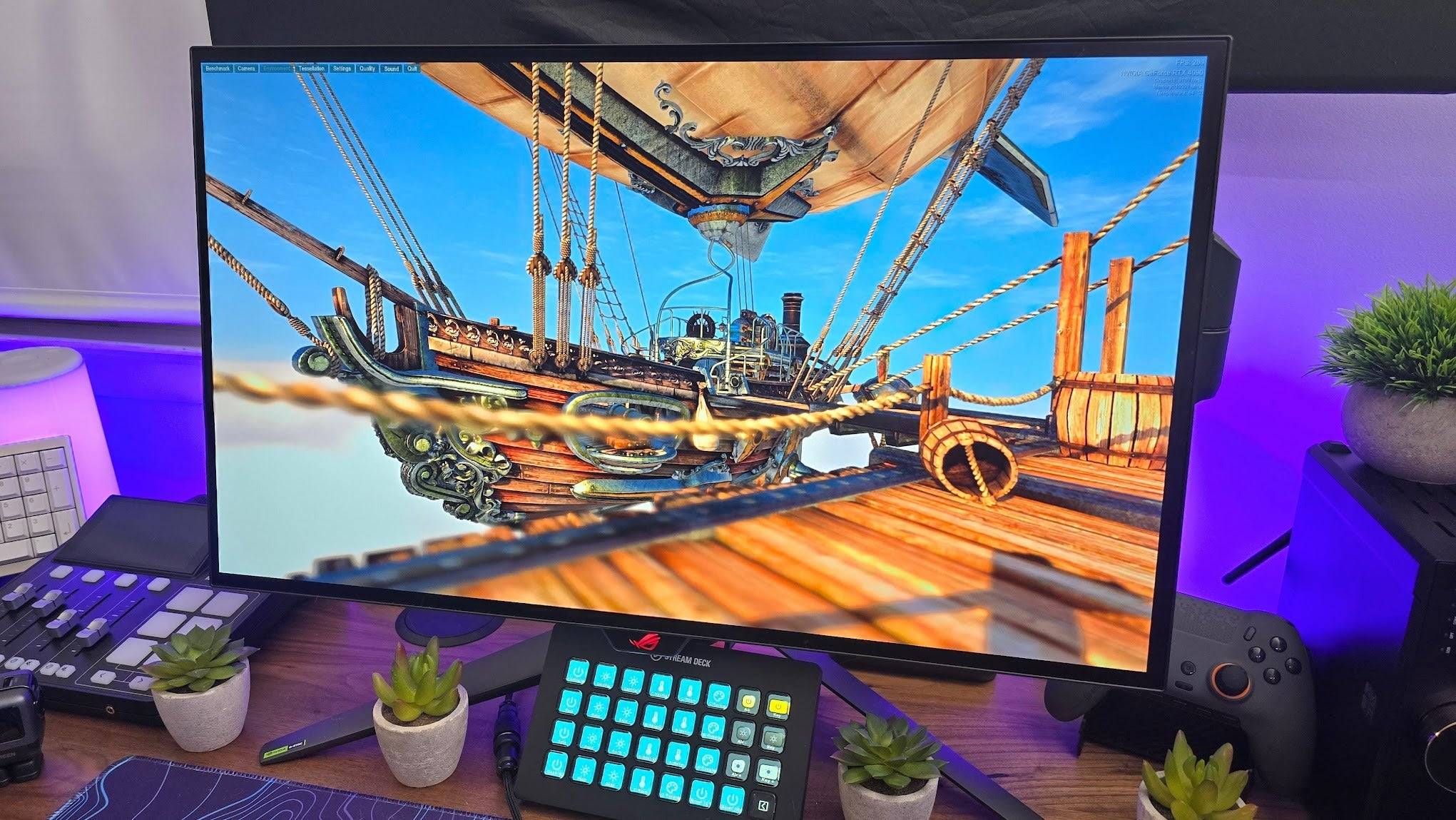
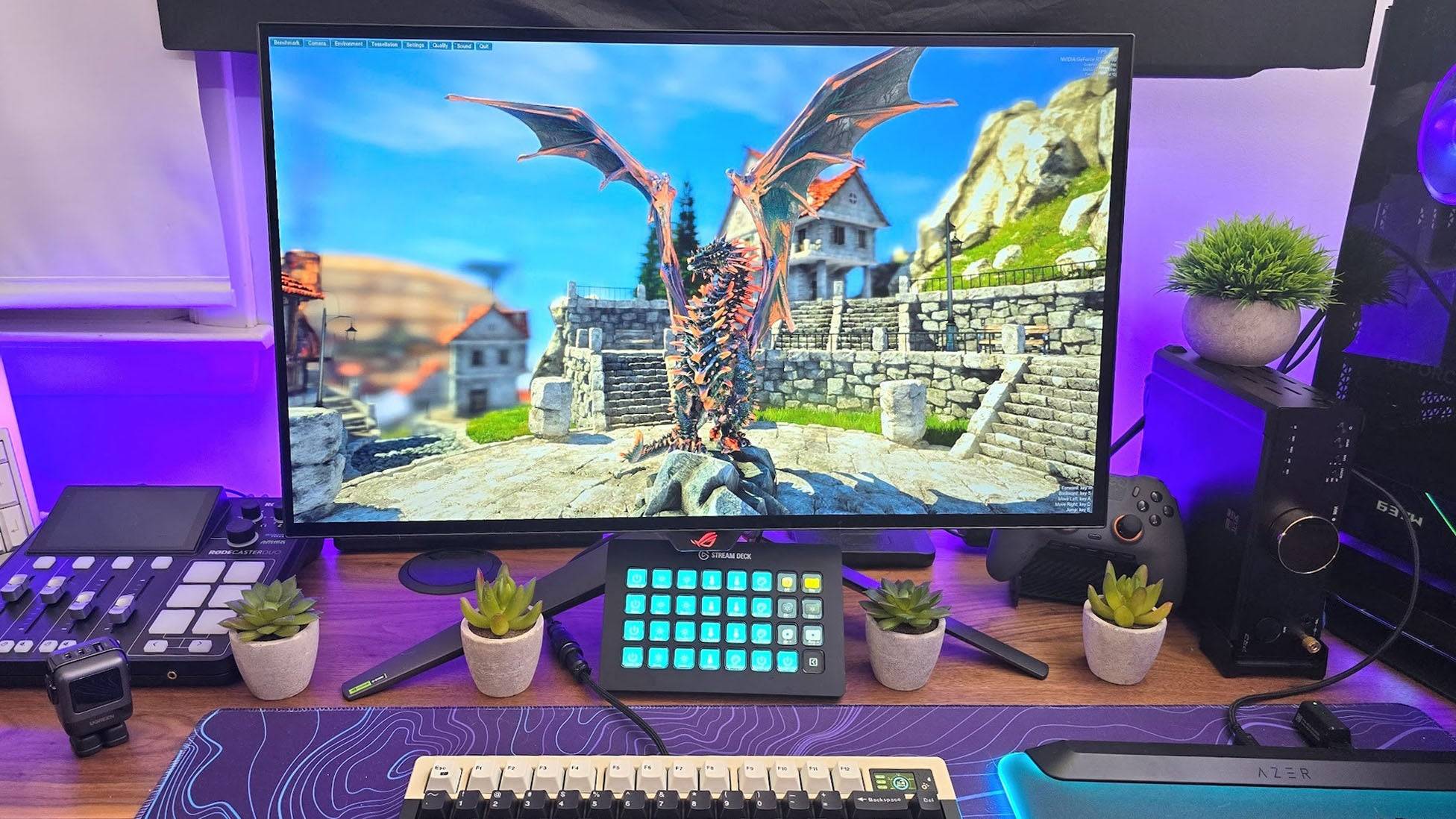
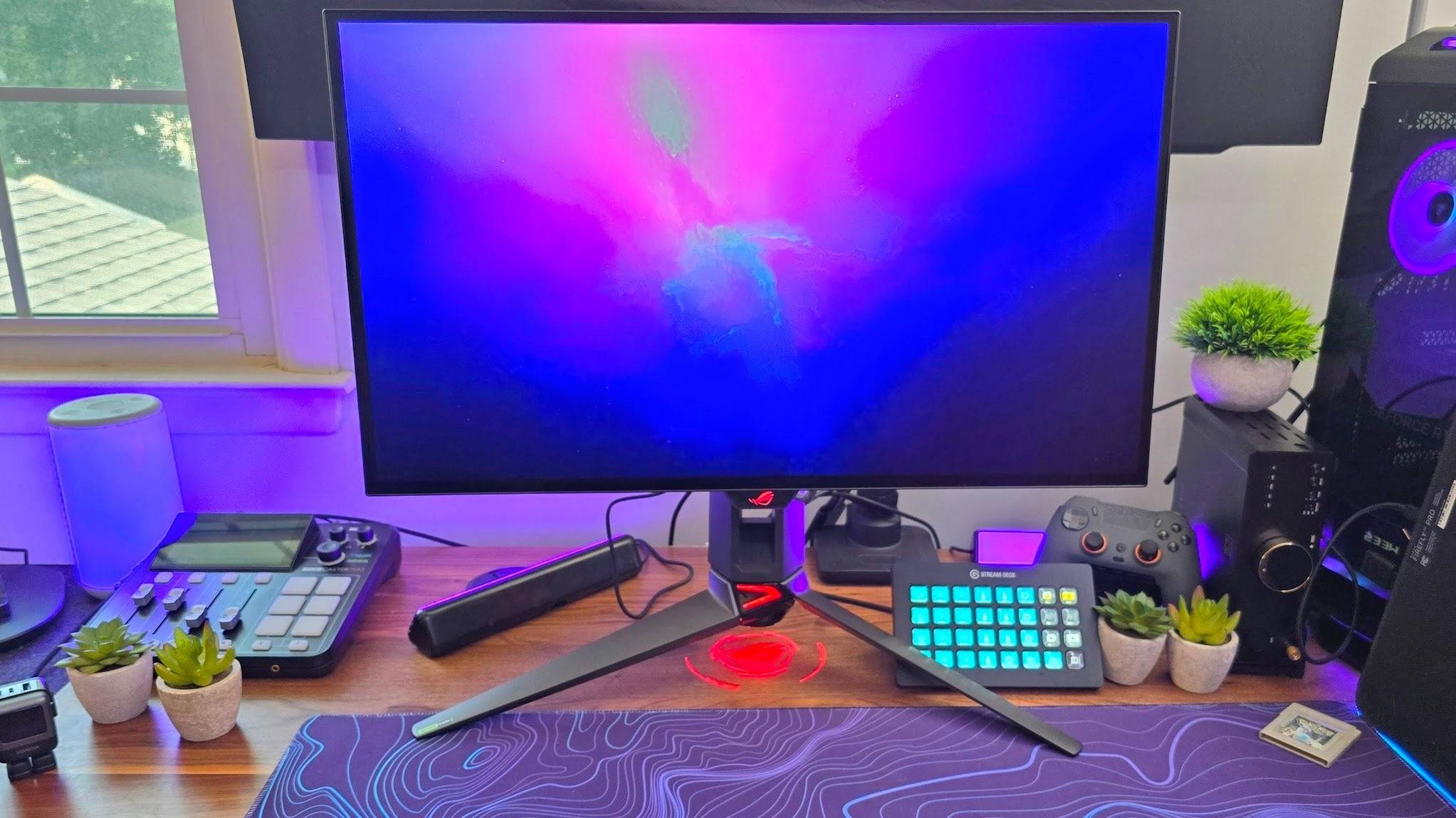
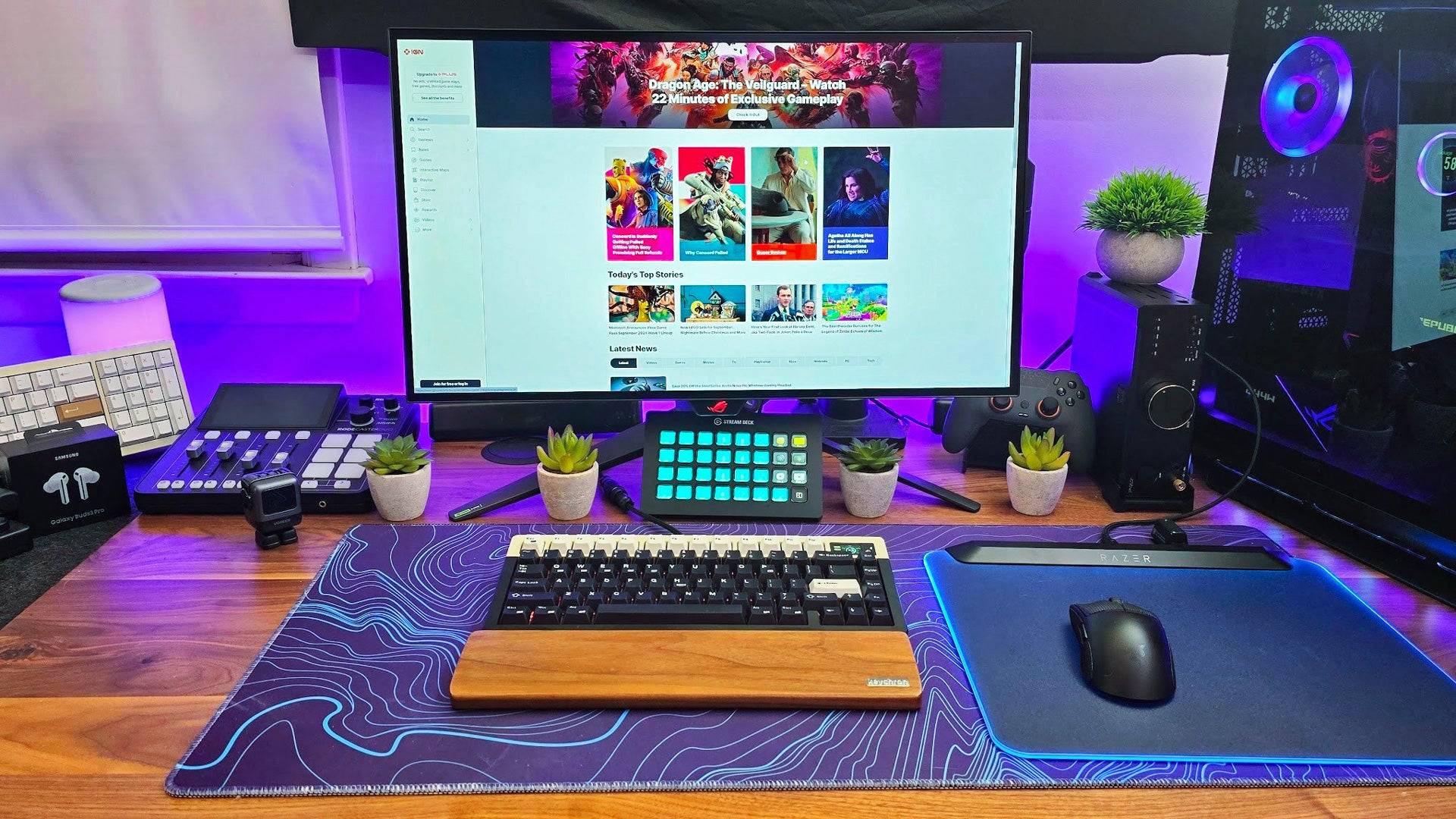
4. Asus ROG Swift PG27AQDP
Best 1440p FreeSync Monitor
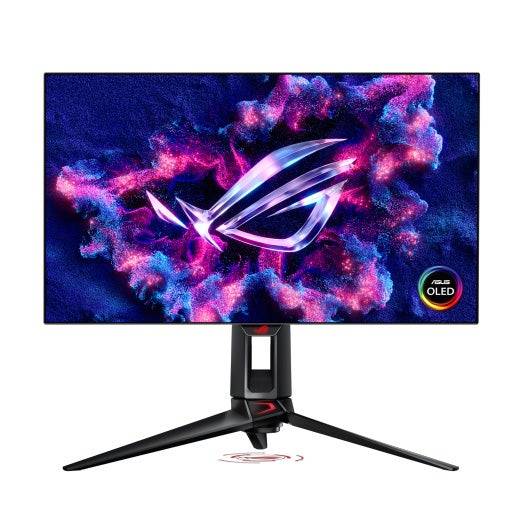 ### Asus ROG Swift PG27AQDP
### Asus ROG Swift PG27AQDP
0The Asus ROG Swift PG27AQDP is a top-tier gaming monitor that meets all the needs of a competitive gamer. See it at Newegg
Product Specifications
Screen size: 26.5"Aspect ratio: 16:9
Resolution: 2,560 x 1,440
Panel type: OLED, FreeSync Premium
Brightness: 1,300cd/m²
Refresh rate: 480Hz
Response time: 0.03ms
Inputs: 2 x HDMI 2.1, 1 x DisplayPort 1.4, 2 x USB 3.2
For 1440p gaming, the Asus ROG Swift PG27AQDP is unrivaled. With an incredible 480Hz refresh rate, it offers class-leading motion clarity and great pixel density, ensuring you won't miss any crucial details during competitive play.
While it's a premium-priced monitor, it matches its cost with top-tier performance. The WOLED panel reaches 1,300 nits in highlights and looks fantastic even in SDR. Its colors are rich, though perhaps not as tightly accurate as QD-OLED counterparts out-of-the-box, but still suitable for content creation. This display excels in almost any use case, except for professionally color-critical work.
It's also a great option for current-generation gaming consoles, featuring two HDMI 2.1 ports to run both your PS5 and Xbox Series X at their maximum 240Hz refresh rate, offering enhanced clarity and an immersive picture. Gaming with a controller doesn't mean sacrificing quality!
AOC Agon Pro AG456UCZD – Photos
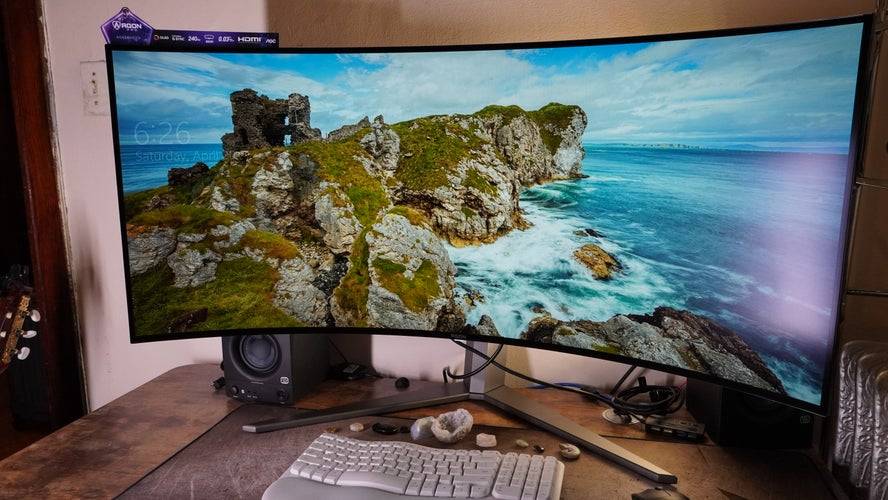
 7 Images
7 Images



5. AOC Agon Pro AG456UCZD
Best Ultrawide FreeSync Monitor
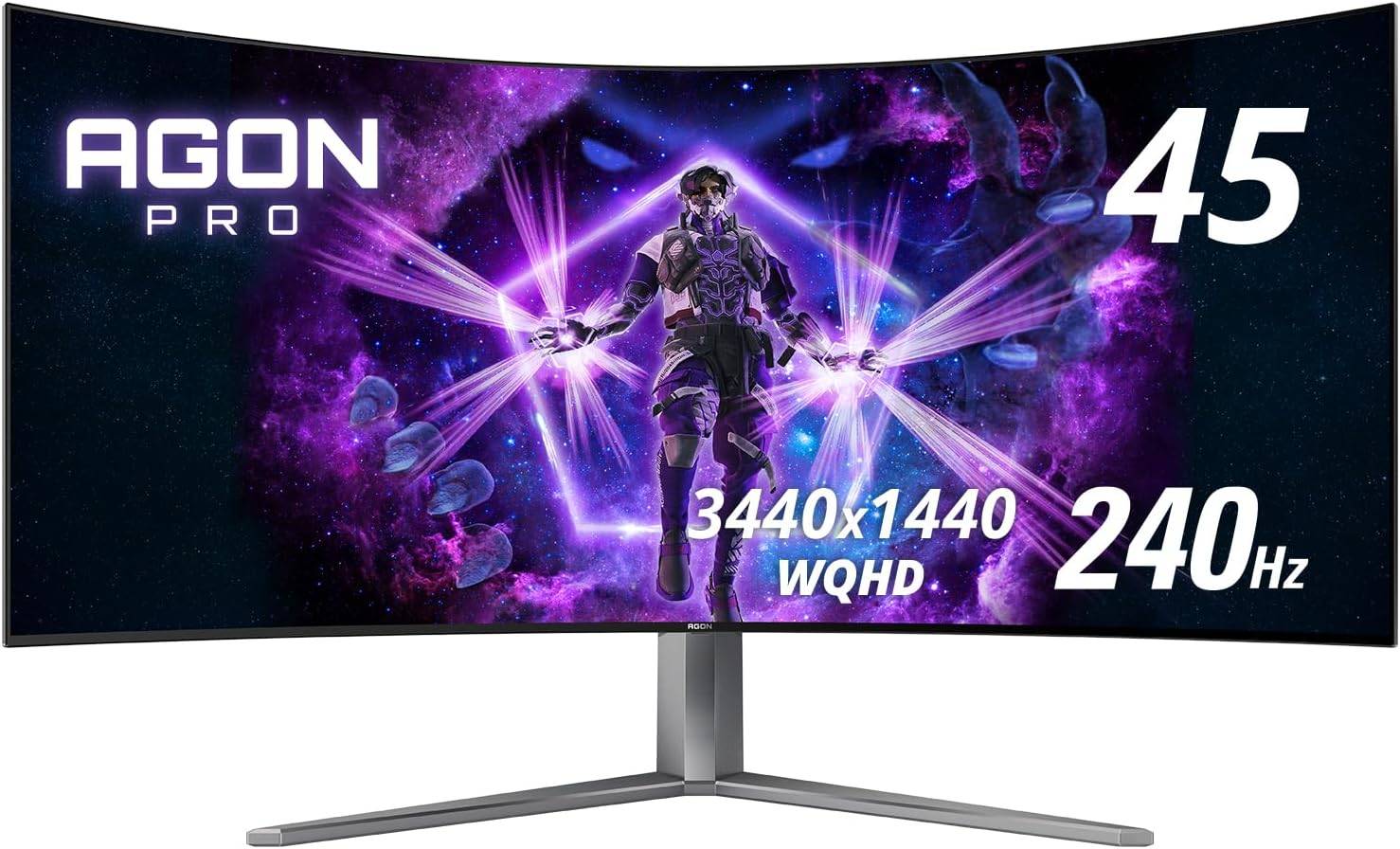 ### AOC Agon Pro AG456UCZD
### AOC Agon Pro AG456UCZD
0The AOC Agon Pro AG456UCZD is a high-end OLED ultrawide gaming monitor that brings your PC games to life. See it at Amazon
Product Specifications
Screen size: 44.5"Aspect ratio: 21:9
Resolution: 3,440 x 1,440
Panel type: OLED
HDR compatibility: HDR 10
Brightness: 1,000cd/m²
Refresh rate: 240Hz
Response time: 0.03ms
Inputs: 2 x HDMI 2.0, 1 x DisplayPort 1.4, 1 x USB-C (DisplayPort mode), 4 x USB-A, 1 x USB-B
PROS
- Stunning picture
- Ultrawide resolution
- Massive size
CONS
- Color accuracy could be better
When it comes to ultrawide FreeSync monitors, the AOC Agon Pro AG456UCZD is an absolute powerhouse. At 45 inches with a 21:9 aspect ratio, it becomes the centerpiece of your gaming setup.
Beyond its size, it boasts a fast and vibrant OLED panel that gets bright in HDR and has a 240Hz refresh rate. With OLED's native 0.03ms response time, the Agon Pro offers pristine clarity during rapid motion.
A 45-inch ultrawide may not be for everyone due to its imposing size, but if you crave extra screen real estate, the AG456UCZD is unmatched. Most 21:9 monitors only extend width, but the Agon Pro provides additional vertical space, offering more usable area than competing FreeSync monitors.
It offers next-level immersion thanks to its deep 800R curve, which wraps into your peripheral vision and draws you into the gaming experience. However, this curve impacts text clarity, so consider a shallower curve if you plan to use it for productivity.
What to Look for in a FreeSync Gaming Monitor
FreeSync is AMD's branding for its variable refresh rate (VRR) monitor technology, built on the VESA Adaptive-Sync protocol within the DisplayPort 1.2a spec. With a FreeSync monitor, you'll enjoy variable refresh rates with most modern AMD graphics cards. If you're using an Nvidia graphics card or another video source (like a game console via HDMI), the monitor will function as a standard display.
There are several tiers of FreeSync, including standard AMD FreeSync, FreeSync Premium, and FreeSync Premium Pro, each offering additional features and performance guarantees:
AMD FreeSync: This standard tier ensures variable refresh rate technology to eliminate screen tearing and provide low frame rate compensation.
AMD FreeSync Premium: Similar to the standard tier, it guarantees a minimum refresh rate of at least 120Hz.
AMD FreeSync Premium Pro: The highest tier, which adds HDR performance, ensuring a high-quality HDR gaming and video experience.
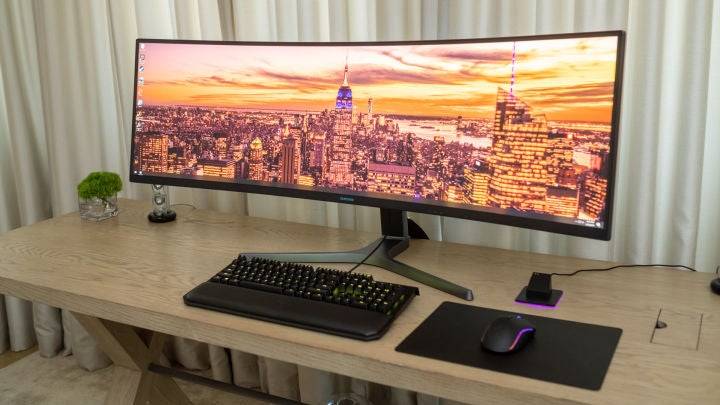
FreeSync Gaming Monitor FAQ
What is VRR?
A standard monitor is locked to a single refresh rate, the number of times per second it changes pixel color and brightness. Your graphics card draws a frame and waits for the monitor's next refresh to display it, causing frame rate jumps between even multiples of the display's refresh rate. Disabling vsync allows the graphics card to run as fast as possible but can lead to screen tearing.
VRR technology, such as G-Sync or FreeSync, synchronizes the monitor's refresh rate with the graphics card's frame rate. If your game runs at 52fps, the monitor refreshes at 52Hz, displaying the frame immediately instead of waiting for the next cycle. This eliminates screen tearing and maintains a smooth frame rate.
There are two main VRR technologies: G-Sync, which is Nvidia proprietary and works only with Nvidia graphics cards, and FreeSync, which is AMD's solution and works with AMD GPUs. G-Sync requires additional hardware, increasing monitor costs but ensuring consistent quality. FreeSync, with no licensing fee or proprietary hardware, generally results in cheaper monitors but with less consistent quality control.
What's the difference between G-Sync and FreeSync?
The best FreeSync and G-Sync monitors perform similarly, both aiming to synchronize the display's refresh rate with the frame rate of your PC or console. They use the VESA Adaptive-Sync standard, and most FreeSync displays work as G-Sync-compatible, and vice versa.
The exceptions are G-Sync and G-Sync Ultimate monitors, which require additional hardware, work only with Nvidia GPUs, and handle adaptive sync across the entire refresh rate range, typically down to 48Hz, making them pricier.
You can read more about FreeSync vs. G-Sync.
What is Low Framerate Compensation?
Low Framerate Compensation (LFC) is a feature in all AMD FreeSync monitors. When your fps drops, LFC duplicates frames to smooth gameplay and prevent hitching. Unlike Nvidia's frame generation technology, LFC does not create new frames but duplicates existing ones. The effectiveness of LFC varies by monitor, so check the specifications to ensure your system benefits from it.
When are FreeSync monitors on sale?
The best times to find discounts on FreeSync monitors are during Amazon Prime Day, Black Friday, and Cyber Monday. Gaming monitor deals also appear during back-to-school sales at the end of summer and in early January, after the winter holidays, when retailers often clear out inventory.
Latest News
more >-

-
- Cardinals Watch Conclave Ahead of Key Event
- Feb 15,2026
-

-

- Xbox Controller Gets a Major Upgrade
- Feb 13,2026
-
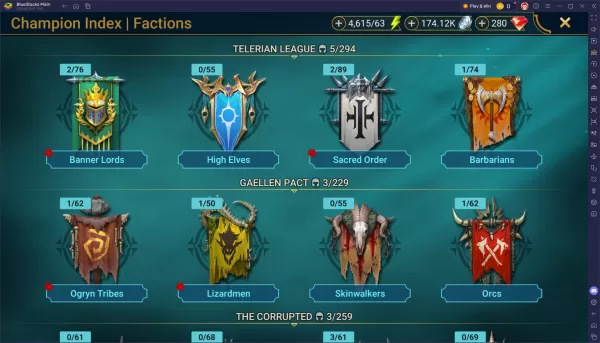
- Top 2025 Faction War Champions in Raid
- Feb 12,2026


